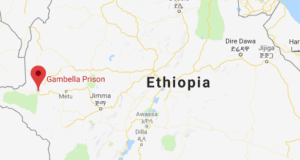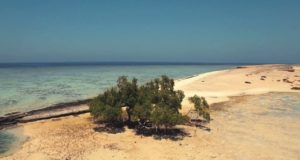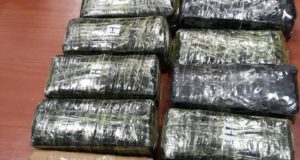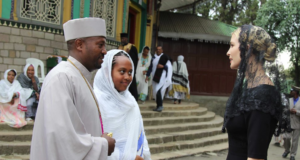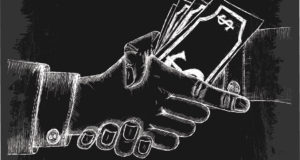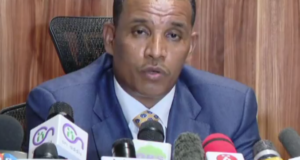ESAT News (October 18, 2016)
A think-tank said on Tuesday that corruption by ruling party officials and disproportionate benefits of the economy that has  gone mainly to Tigrayans drove the people to rise up against the regime in Ethiopia.
gone mainly to Tigrayans drove the people to rise up against the regime in Ethiopia.
London-based Chatham House, the Royal Institute of International Affairs, said in a report that “perceptions are widespread that control of the EPRDF and a disproportionate share of the benefits of the growing economy have gone to ethnic Tigrayans, whose Tigrayan People’s Liberation Front (TPLF) formed the core of the EPRDF.”
“Over the last two-and-a-half decades, there has been a growing contradiction inherent in the expansion of the economy and provision of services, as it is outstripped by growth in expectations, especially among the youth,” the report further said.
“This anger is intensified because of corruption in the political system; the Oromo People’s Democratic Organization (OPDO), the EPRDF member party which controls Oromia Region, is seen as particularly corrupt. This has pitted the population against a party which is meant to represent its interests,”
Chatham House noted that declaring the state of emergency meant that the EPRDF “recognizes that it is has been unable to impose order.”
In a similar vein, Dr. Aleksandra W. Gadzala, a political-risk consultant and political analyst on africa, wrote in National Interest magazine that Tigrayan domination after the fall of the Derg has been palpable. “The presidential office, the parliament, central government ministries and agencies—including public enterprises—and financial institutions have since 1991 all been controlled by the TPLF,” wrote the Oxford-educated expert, who studied the Chinese influence in Ethiopia for her PhD dissertation.

Dr Aleksandra W Gadzala
“Ninety-nine percent of Ethiopian National Defense Force [senior] officers are from Tigray; 97 percent are from the same village. Only the prime minister, Hailemariam Desalegn, is not Tigray: he is Wolayta, an ethnic group that forms the majority of the population in the Southern Nations, Nationalities, and People’s Region (SNNPR). His historically close ties to Meles, first while President of SNNPR, then Deputy Prime Minister and Minister of Foreign Affairs, have, however, effectively rendered him Tigray by association.”
Dr. Gadzala pointed out that submission to the Tigrians is the core of the so called revolutionary democracy, the ideology of the ruling elite. “The EPRDF’s governing ideology, “revolutionary democracy”—a curious concoction of Marxist, Maoist, and ethno-regionalist thought—demands Soviet-style submission to the Tigray-dominated state.”
She argued that TPLF is unwilling to compromise on monopoly control of the state power even under pressure from every direction. “In many respects the state-building question has gone unresolved; Ethiopia’s crisis is largely an existential one. In the coming weeks Hailemariam Desalegn will likely attempt peace by announcing a redistribution of government investments. Most, if not all, political and economic power will remain vested in the TPLF.”
But the expert indicated that even if this may quell the protests for a time, without genuine efforts to address the grievances, the crisis will only get worse.
According to her without “attention to the country’s conflicting institutional and ideological challenges, central to which is the dominance of the TPLF and the Tigray, the situation is likely to get worse before it gets better.”
“All that is at stake, is everything,” she concluded.
 The Ethiopian Satellite Television and Radio (ESAT) No. 1 Ethiopian news media: Esat, Ethiopian news, daily Ethiopian news, ESAT tv, ESAT Radio, Ethiopia
The Ethiopian Satellite Television and Radio (ESAT) No. 1 Ethiopian news media: Esat, Ethiopian news, daily Ethiopian news, ESAT tv, ESAT Radio, Ethiopia
